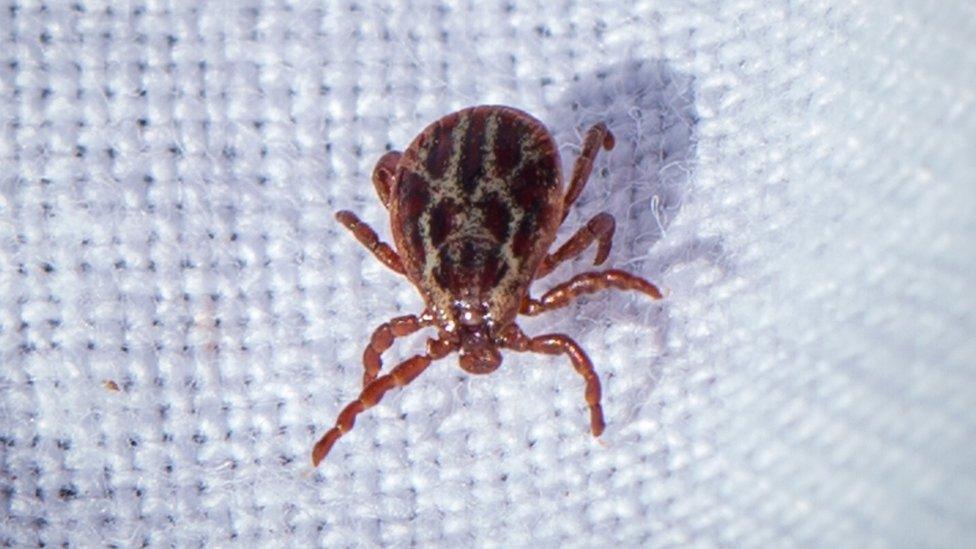Matt Dawson: I had to have heart surgery after a tick bite
- Published
The former England rugby player tells 5 live that having Lyme Disease was "seriously debilitating"
When former England rugby player Matt Dawson was bitten by a tick in a London park early last year, it caused a bacterial infection to spread through his body.
"I had two days where I felt awful. Very feverish, on the sofa, crashed out," he said.
Eventually he went to hospital where he was diagnosed with Lyme disease:
"It was a really scary time for me and my family. Such a tiny creature caused me to end up needing heart surgery."
Lyme disease is a bacterial infection, passed on to humans by infected ticks.
While it is difficult to estimate the total number of UK cases, they are understood to have increased more than fourfold in the past 10 years.
The peak season is April to October, though they are active all year round.

How can I spot the symptoms of Lyme Disease?
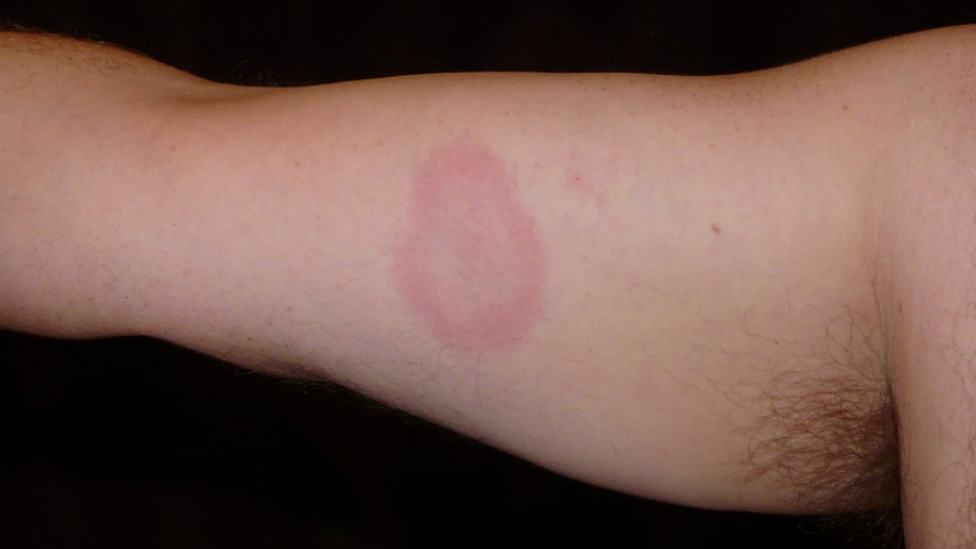
A distinctive rash called erythema migrans often develops after the tick bite
In around two-thirds of cases, a distinctive rash called erythema migrans will develop in the days to weeks that follow the tick bite
It is often shaped like a bullseye, but not in all cases, and some individuals will have several rather than one
Flu-like symptoms are another strong indicator of Lyme disease
Facial palsy is common in children
Others may experience tingling or numbness in parts of the body and, rarely, severe headaches
If you get these symptoms and have also been bitten by a tick - or been out in a tick hotspot - then it is worth talking to your doctor
If left untreated, early localised Lyme can attack the nervous system and cause debilitating neurological problems
However, if you receive prompt antibiotic treatment, it can successfully treat the disease and prevent further illness

A World Cup winner in 2003, Dawson played 77 times for England and made seven appearances for the British and Irish Lions.
Matt said he was floored by his diagnosis: "I'd heard of Lyme disease before. It was something I'd always associated with places abroad, on the continent, in America, wherever there were deer.
"There's no way that I would've walked through a wood or a forest with my kids and gone back home and thought, 'right, I'll just check for some ticks just to make sure everything is fine'. I just wouldn't have thought of that."

How you get Lyme disease
Ticks can be found in areas with deep or overgrown vegetation.
They're common in woodland and heath areas, but can also be found in gardens or parks.
People who hike and camp in such places are at risk of getting bitten.
Ticks don't jump or fly, but climb on to your clothes or skin if you brush against something they're on. They then bite into the skin and start to feed on your blood.
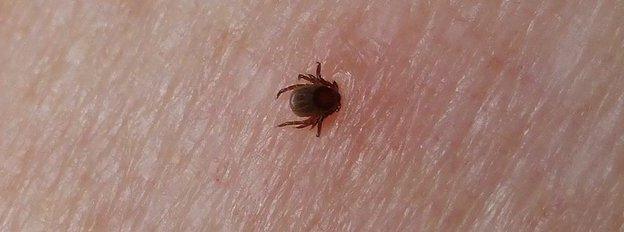
It's thought only a small proportion of ticks carry the bacteria that cause Lyme disease, so being bitten doesn't mean you'll definitely be infected.
Pets can also bring ticks home in their fur.
Source: NHS Choices, external

Matt Dawson has now joined forces with The Big Tick Project,, external which looks to raise awareness about the dangers of ticks and tick-borne disease in the UK.
Tied to researchers at University of Bristol, the project has conducted the largest ever study of ticks in dogs. They studied 14,000 dogs from 1,400 vets across the UK and found almost one-third were carrying a tick.
TV presenter and naturalist Chris Packham is working with the project to raise awareness among pet owners and vets:
"It is really important that pet owners understand how they can treat their pets for ticks and reduce the risk of the further spread of these horrible, debilitating and potentially dangerous diseases to the UK," he said.
The journey to recovery
After multiple heart operations and 18 months of treatment, Matt no longer has the disease.
But it still affects his life: "I'm still on medication and its going to take a lot of time for the heart to fully recover.
"This is not something that should be looked at like, 'oh it's only a tick, a tick is a bit like a flea, its fine!'," he said.
"These ticks carry some really quite potent, serious bacteria and they can cause you a lot of problems. Raising awareness of them is imperative."

Matt, seen here with his family, has had to change the way he exercises


- Published31 July 2016
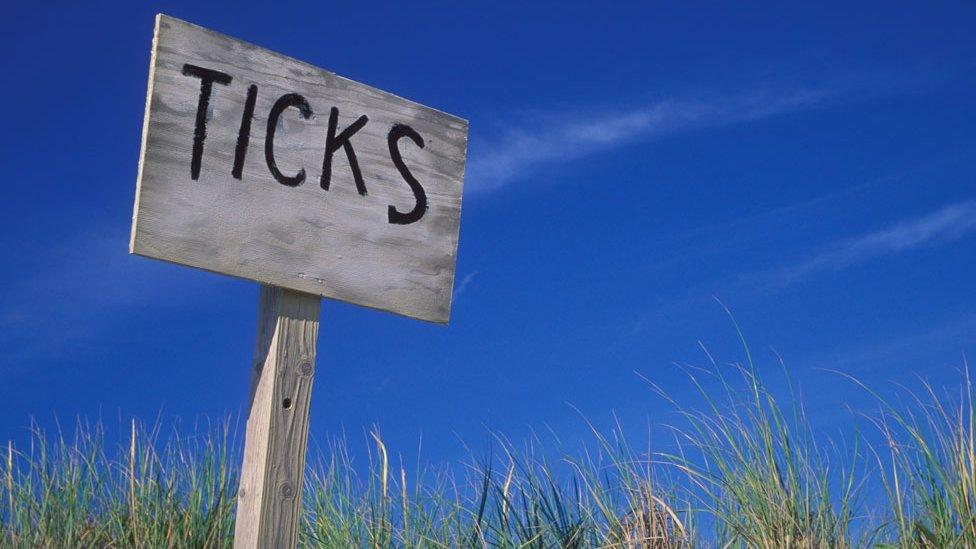
- Published21 October 2015
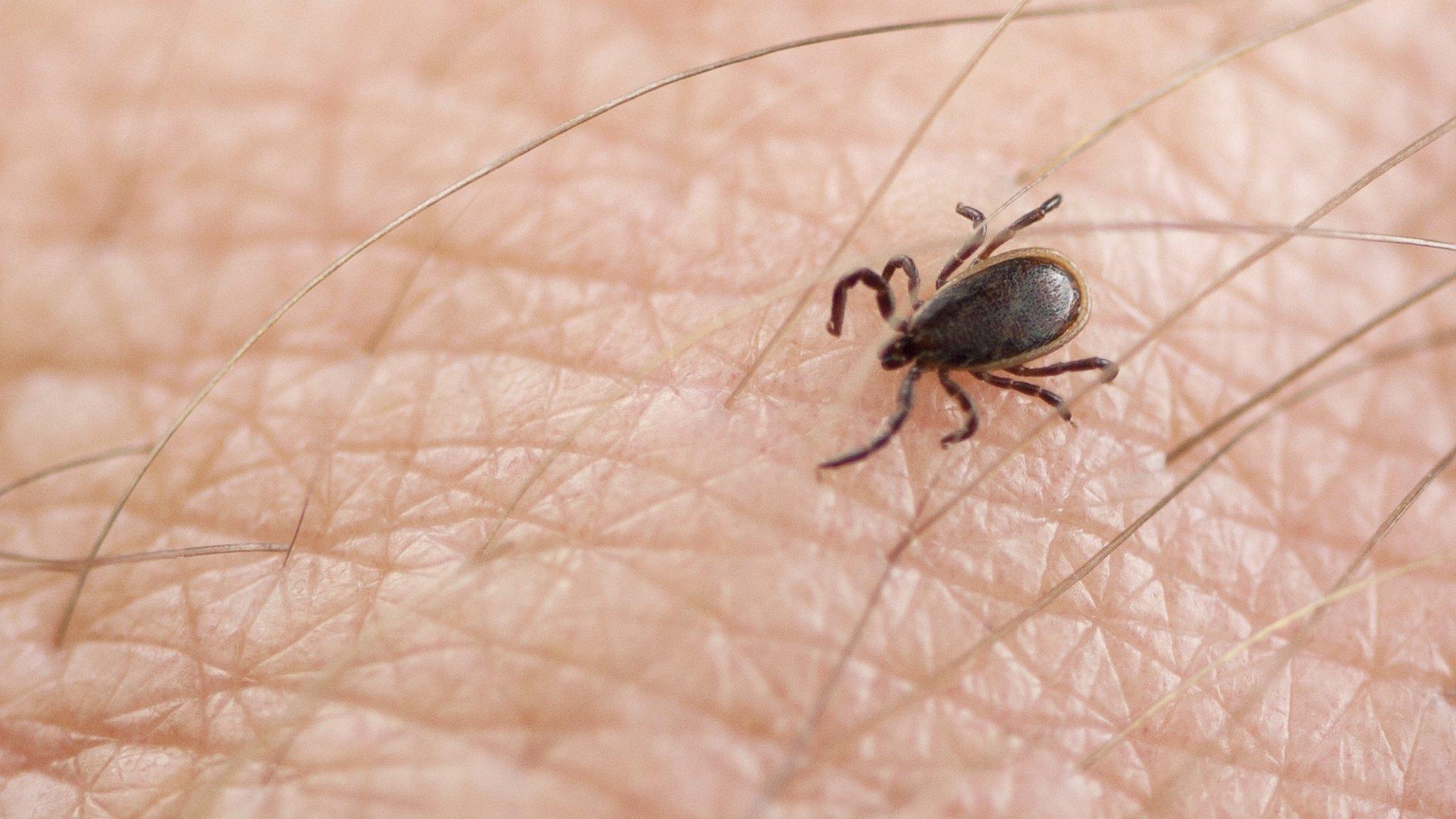
- Published16 March 2016
